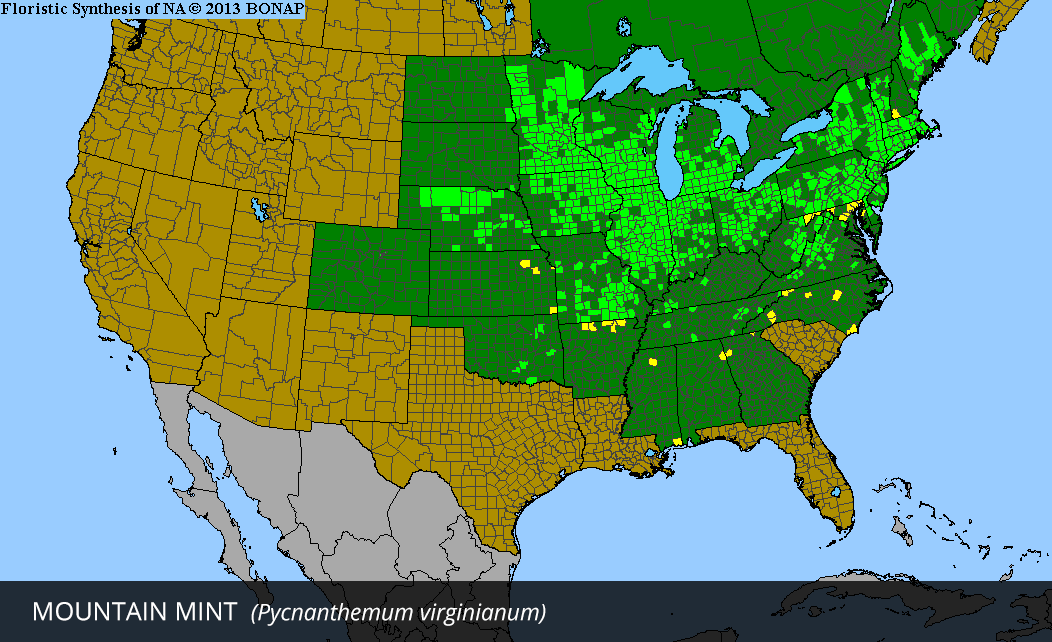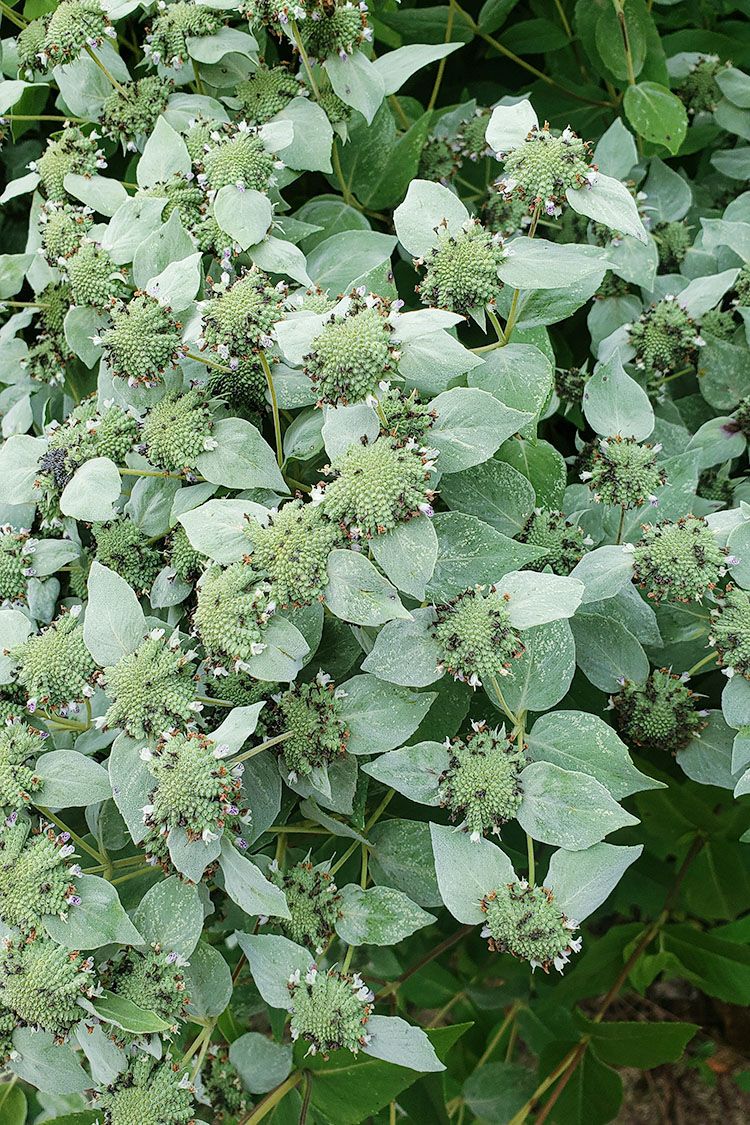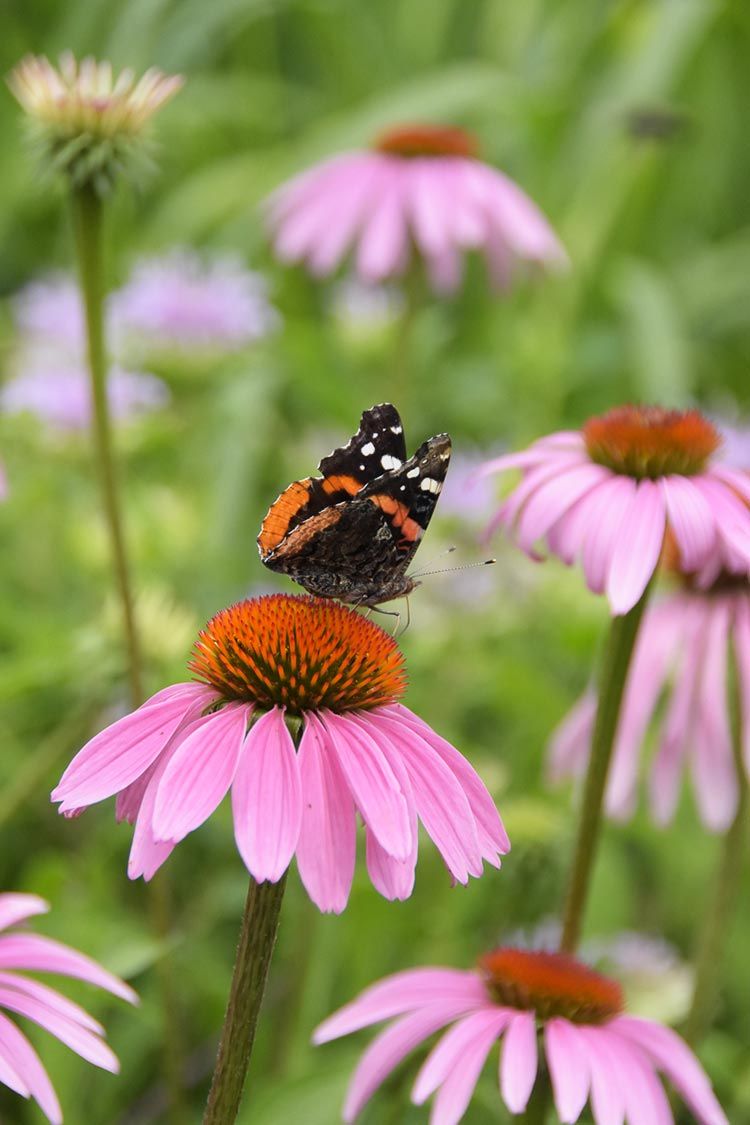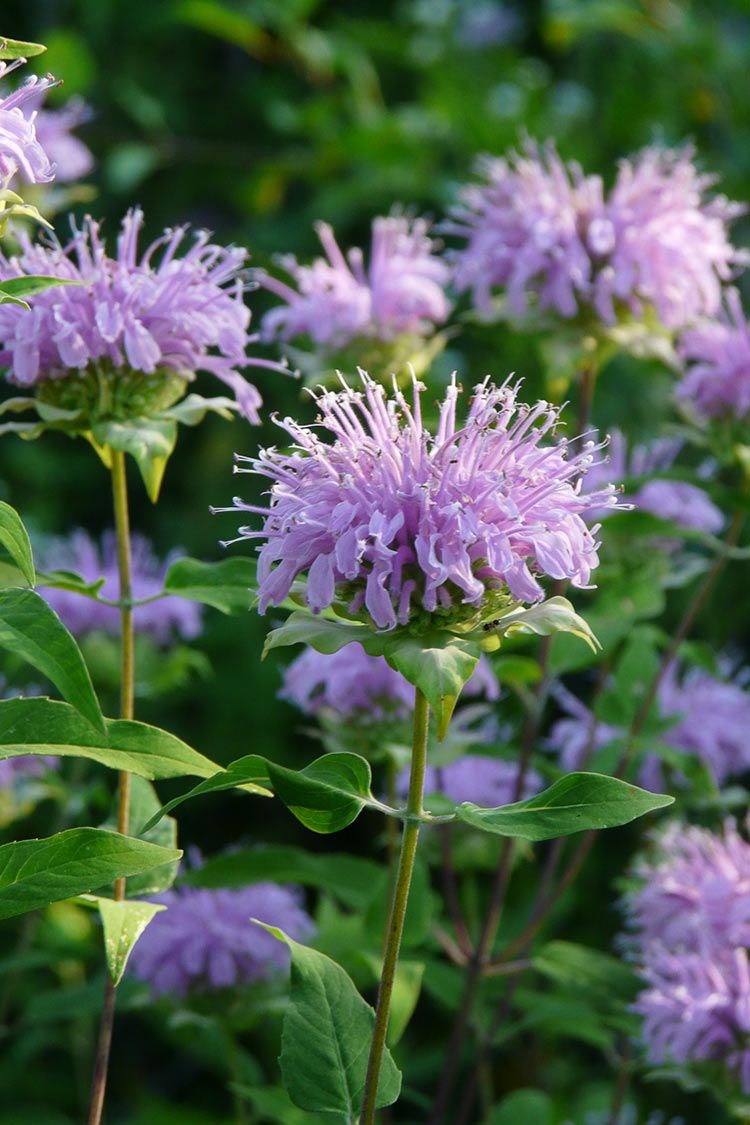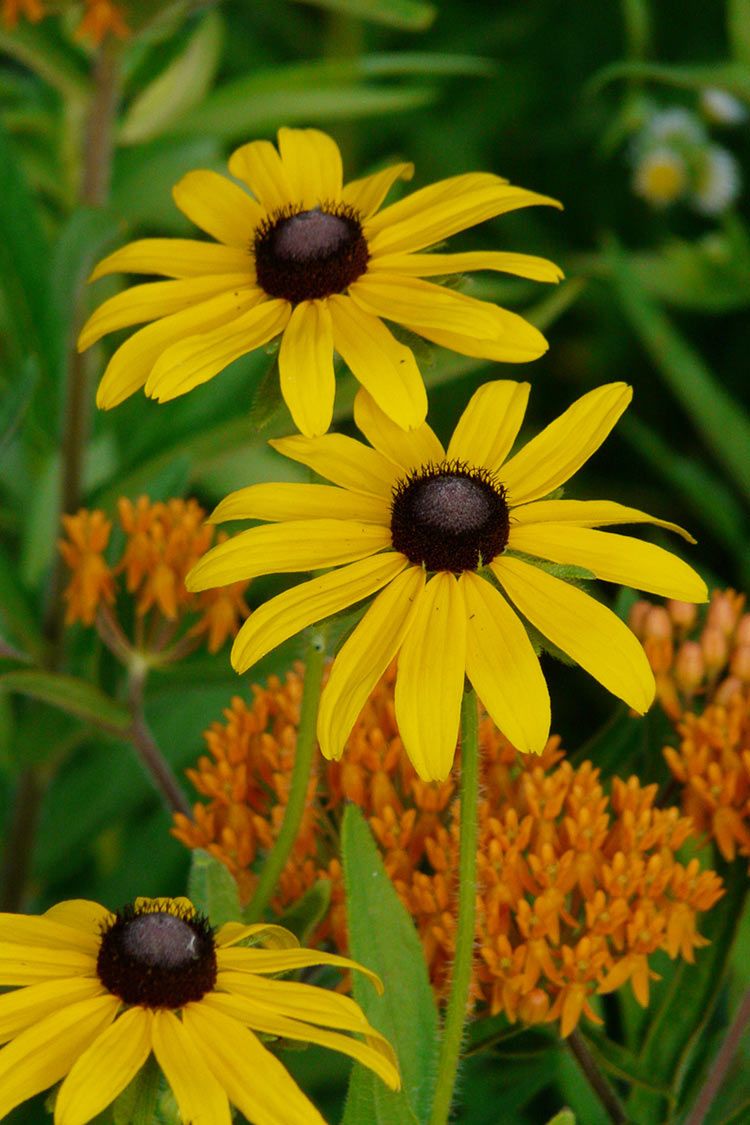Mountain Mint
In midsummer, Mountain Mint is covered in small white flowers, often spotted with purple, atop strongly upright stems. The genus name, Pycnanthemum, means "densely packed flowers," and the top of this plant is covered …
| Soil Type | Clay, Loam, Sand |
|---|---|
| Soil Moisture | Moist, Wet |
| Sun Exposure | Full Sun, Partial |
| Height | 3' |
| Bloom Color | White |
| Bloom Time | July, Aug, Sep |
| Spacing | 1' |
| Zones | 3, 4, 5, 6, 7 |
| Root Type | Fibrous |
| Benefits | Pollinators, Deer Resistant |
In midsummer, Mountain Mint is covered in small white flowers, often spotted with purple, atop strongly upright stems. The genus name, Pycnanthemum, means "densely packed flowers," and the top of this plant is covered with a dense white bloom that is highly attractive to pollinators. Typical visitors include honeybees, and a wide variety of native bees, beetles, and Pearl Crescent butterflies. Most of the insects seek nectar.
The common name, Mountain Mint, is somewhat misleading since the plant typically occurs in moist soils in wet meadows, making it an excellent plant for rain gardens, shoreline plantings or any moist area. Low-growing and deer proof, Mountain Mint is unpalatable to a variety of herbivores and insects - probably due to the minty flavor. The leaves emit a strong aroma when crushed and can be used in teas.




